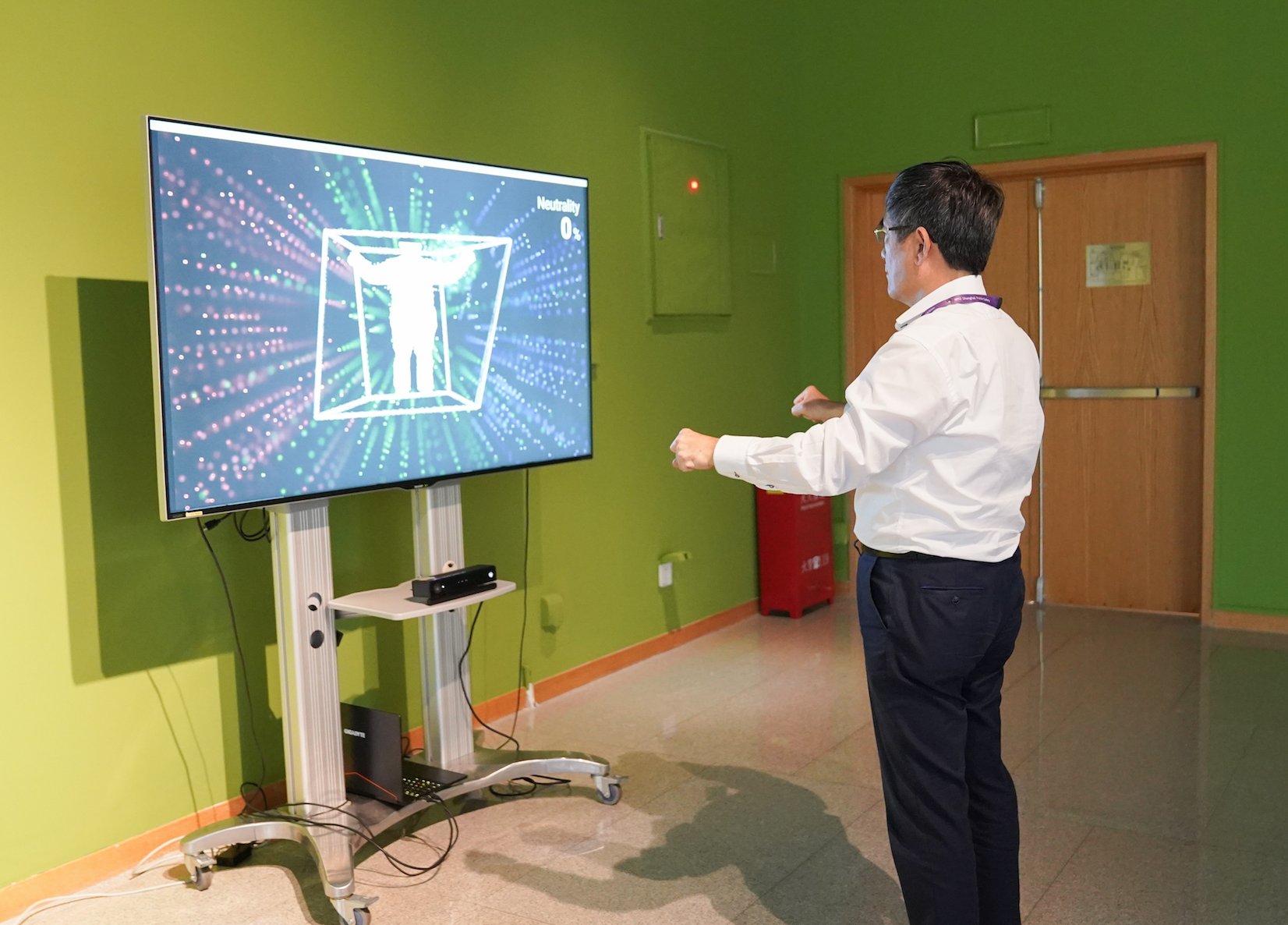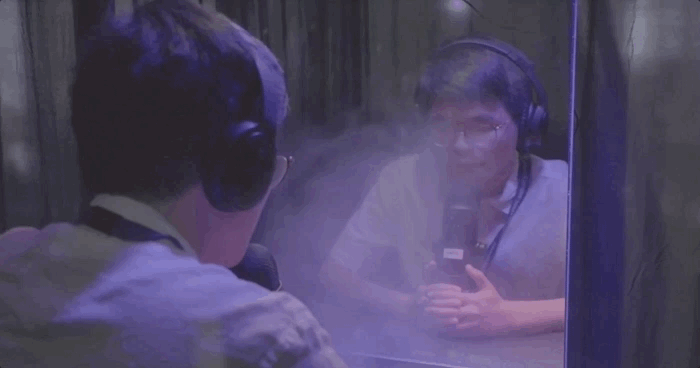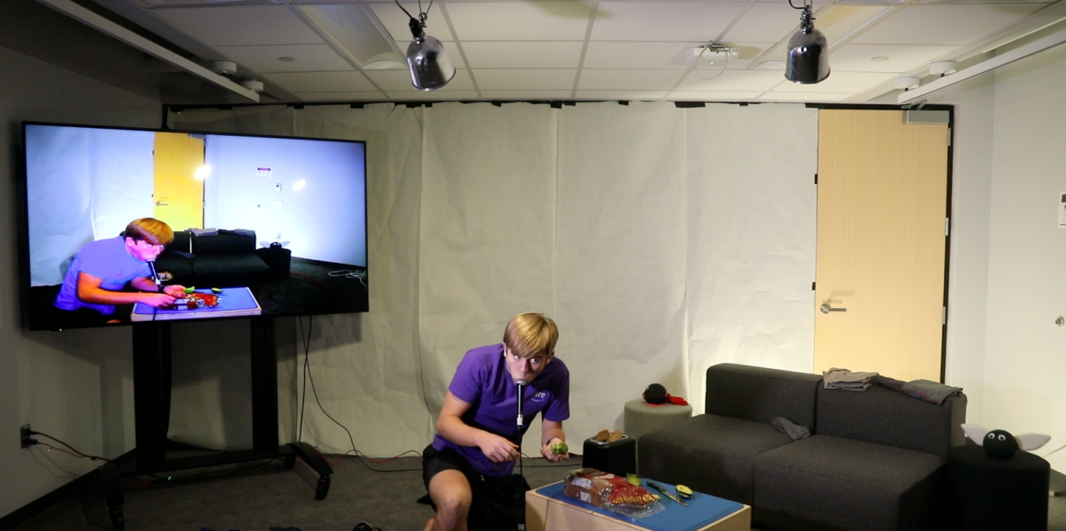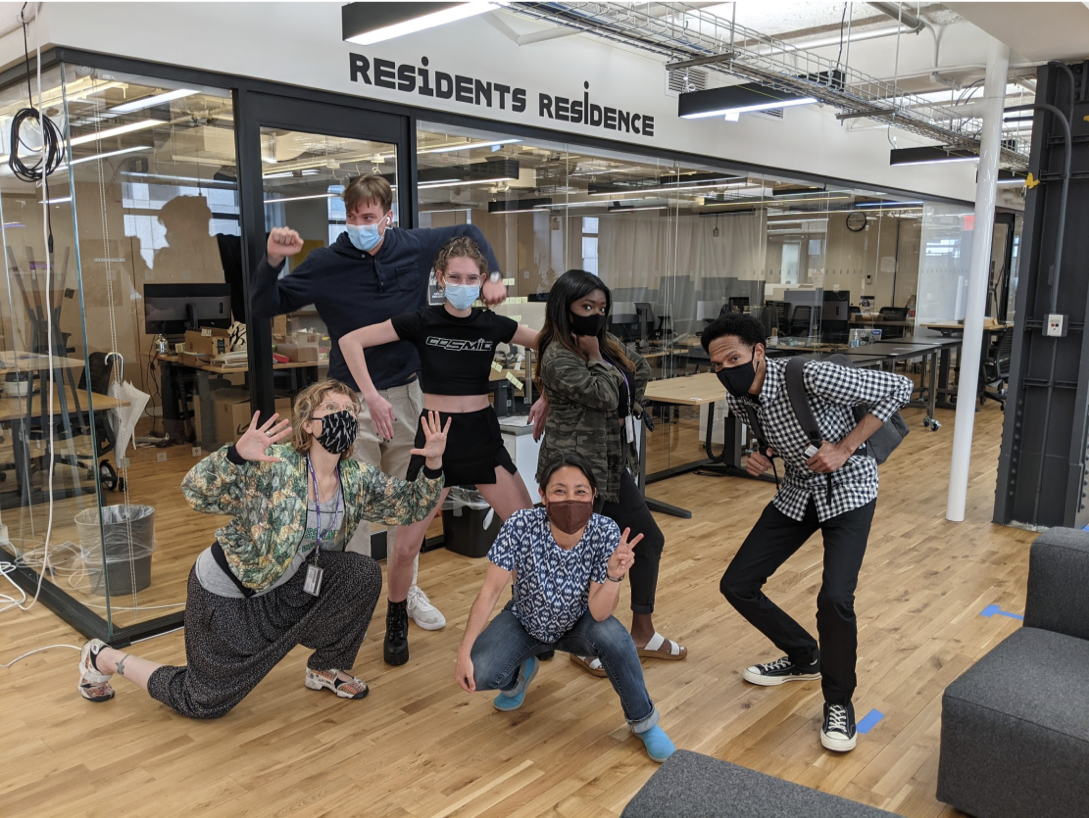NYU Shanghai marked another milestone on July 2 with the graduation of the first class of students in the Interactive Media Arts (IMA) Global Low Residency Master of Arts program (Low Res), a collaboration between NYU Shanghai’s innovative IMA program and the Interactive Telecommunications Program (ITP) at NYU’s Tisch School of the Arts.
Following a final project showcase that broke boundaries between technology, arts, and media, the 30 Low Res graduates from seven countries and regions celebrated in a border-defying online commencement, with students and faculty signing on from cities spanning from Seattle to Kathmandu to Shenzhen. The traditional conferral of degrees took the form of a Zoom spotlight on each graduate following a tribute video from faculty and program contributors, as well as pre-recorded congratulatory addresses from Dean of Tisch School of the Arts Allyson Green and NYU Shanghai Provost Joanna Waley-Cohen.
“The first year of the Low Res was an incredibly rewarding and transformative year for everyone involved - students, faculty and staff,” said Craig Protzel, Director of the Global Low Residency MA program and Assistant Arts Professor at NYU Tisch's ITP, who welcomed the program’s second cohort – including 33 students from seven countries and regions – on July 7.

NYU Shanghai Chancellor Tong Shijun tries out Low Res graduate Benoit Belsot M.A. ’21’s interactive video installation “Bubbles of Choice,” which is designed to train users to get out of their filter bubble by gathering information from a variety of sources.
Headline photo above: (Left) “Mama, Soil, and Spirit,” an installation by Maria Maciak M.A. ’21, which uses soil moisture and temperature sensors to manipulate video images, exploring relationality between human and non-human entities. (Right) “Journey of Eggs,” an installation by Xie Wenye M.A. ’21 that explores whether women can experience real autonomy and freedom given the time constraints on female fertility.
“I'm incredibly proud of the students’ perseverance. Despite all of the adversity and uncertainty that transpired over the past year, the Low Res students found a way to build a resilient community and to produce exceptional work, incorporating emerging technologies from across the curriculum in ways that speak to a variety of personal and global issues.”
The first class of Low Res graduates comes from a broad range of professional backgrounds spanning theater and TV production, education, design, fine arts, journalism, and pro tennis. Many of them brought those backgrounds to bear in their final projects, harnessing their newly-honed tech and design skills to bring fresh perspectives to everything from the mindfulness craze, to the sourcing of local news, to solutions for escaping our algorithm-induced filter bubbles.

Haoqi Xia M.A. ’21 tests out his classmate Lu Yiru M.A. ’21’s final project, “The Miracle of Breathing,” a “speculative vending machine that sells mindfulness and breathing techniques as commodified goods.”
Graduate Ivy Li Shu M.A. ’21, who worked for nearly a decade on Jiangsu TV’s long-running dating show “If You Are the One,” focused on how to use art and technology to create a new, more fluid way for people (including potential show guests) to connect with a stranger. Her interactive video installation “Closer” uses visual “noise” to induce users to step away from the installation’s screen until they literally bump into or cross paths with another installation user.
“My goal was to use design to create what we call the ‘aha’ moment on our show – the moment where a person realizes that they have connected with the other person, and they see a new possibility,” Li said. Li, who had no previous design background, says she is excited to finally have the digital design skills to bridge the gap between what she can envision in her work and what she can actually create herself.
Po-wen Shih M.A. ’21, an industrial designer who recently opened his own design firm, said he has also found a wealth of new possibilities and perspectives for his professional development in the course of the Low Res program.
“I came to Low Res to learn more about the systems and structures behind a lot of contemporary products: big data, networks, servers, etc. And in studying these structures, I realized that they are also material and physical things, too,” Shih said. “These new ideas and new perspectives are things that I can directly link to my professional life.”
Eric Mao, Associate Dean of Graduate and Advanced Education at NYU Shanghai, remarked, “Little did we know how dramatically the pandemic would alter the course of the program, yet students in the Class of 2021 never wavered in their commitment. Their incredible ingenuity and spirit of experimentation will define them and, by extension, the Low Res program for many years to come.”

Michael Morran M.A. ’21 delivers his final project, “Smart Home,” “a speculative performance about life in the near future of fully integrated smart homes, when major corporations use the virtual assistants and the Internet of Things to collect our most personal data.”
Originally slated to include both extensive online modules and in-person coursework and community engagement at three NYU Global Network sites – Shanghai, New York, and Berlin – the Low Res program continuously adapted its format to accommodate a rapidly changing pandemic situation.
“Adjusting for time zones and differing schedules required flexibility by everyone, but the program always had a distributed context built into its design,” said Protzel. “So we emphasized aspects of the curriculum where students could share data and observations from their local surroundings to serve as inspiration and as media for each other's projects.”
All classes took place online in multiple sessions scheduled to accommodate several different time zones, allowing students to continue working in their professional capacities and to learn alongside students in other locations. Classes like "50 Days of Making" – where students made an original work every day for 50 days straight and shared it with classmates daily via social media – fostered a communal and connected experience founded in maker culture. Final summer session classes such as “NIME (New Interfaces for Musical Expression)” and “Make Art with AI” gave students in New York and Shanghai more production-focused coursework, with in-person access to maker space resources and faculty collaboration.

New York-based Low Res students strike a pose in the program’s maker space at NYU Tisch School of the Arts.
The online format also provided more opportunities to connect with makers and artists in locations and contexts well beyond the scheduled residency sites, including Barcelona-based artist Joanna Moll, London-based creative director and digital entrepreneur Usman Haque, and design partners Rune Madsen and Martin Bravo, who joined from Denmark and Chile, respectively.
“This first cohort signed up for a new, innovative program that was looking to embed education right into their life. They anticipated what everyone else learned in the pandemic: Your education can be more creatively integrated with the rest of your life using technology,” said Dan O’Sullivan, Associate Dean for Emerging Media at the Tisch School of the Arts and the TBS Chair at ITP.
“I am so excited to follow this special new branch of the ITP/IMA tribe because they learned not only the hows and whys of emerging tech media, but they also developed a special skill set for becoming lifelong learners wherever they find themselves.”